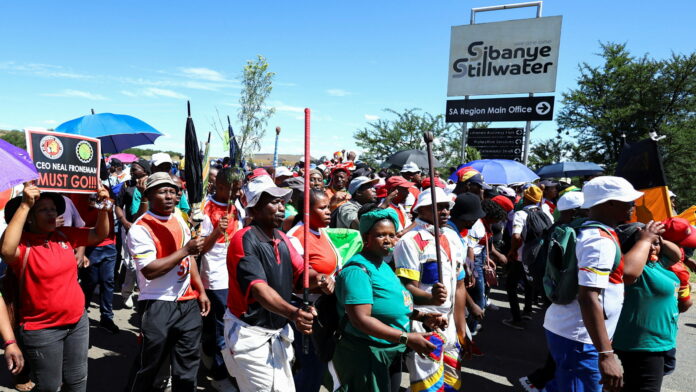
SIBANYE-Stillwater was likely to drive for a quick resolution to wage demands at its platinum group metal (PGM) mines, said Business Times citing equity research analyst at FNB Wealth and Investments, Makhosi Nyamela.
“I do not believe Sibanye will allow the same thing that has happened in gold to happen in platinum. I believe they will do whatever they can to resolve the platinum negotiations quickly,” Nyamela told the newspaper on Sunday.
“I say this because that is where their free cash flow comes mainly from the platinum operations. The gold operations are barely breaking even.”
A strike at Sibanye-Stillwater’s gold mining operations is in its third month with no sign of a breakthrough as yet. It and unions – the National Union of Mineworkers and the Association of Mineworkers & Construction Union – are currently working through the Commission for Conciliation, Mediation and Arbitration to find a breakthrough.
Last week, Anglo American Platinum (Amplats) signed a five-year wage agreement that will see the lowest paid employees in year one receive a basic salary increase of 7.5% or R1,150 a month, increasing to R1,500 by year five. Supervisors will see basic salary increases of 6% in years one to three and 6.5% in years four and five.
Nyamela said the agreement was a positive step by Amplats. “It is in line with the posture of integrity that Amplats CEO Natascha Viljoen has come to represent so far in dealing with the business. It’s a positive thing.”
Speaking at the signing ceremony last week, Viljoen said: “All of us in this room know that the mining industry and organised labour have a complicated history in South Africa. Some would say the complication came as a result of not having the right kind of relationships.”









